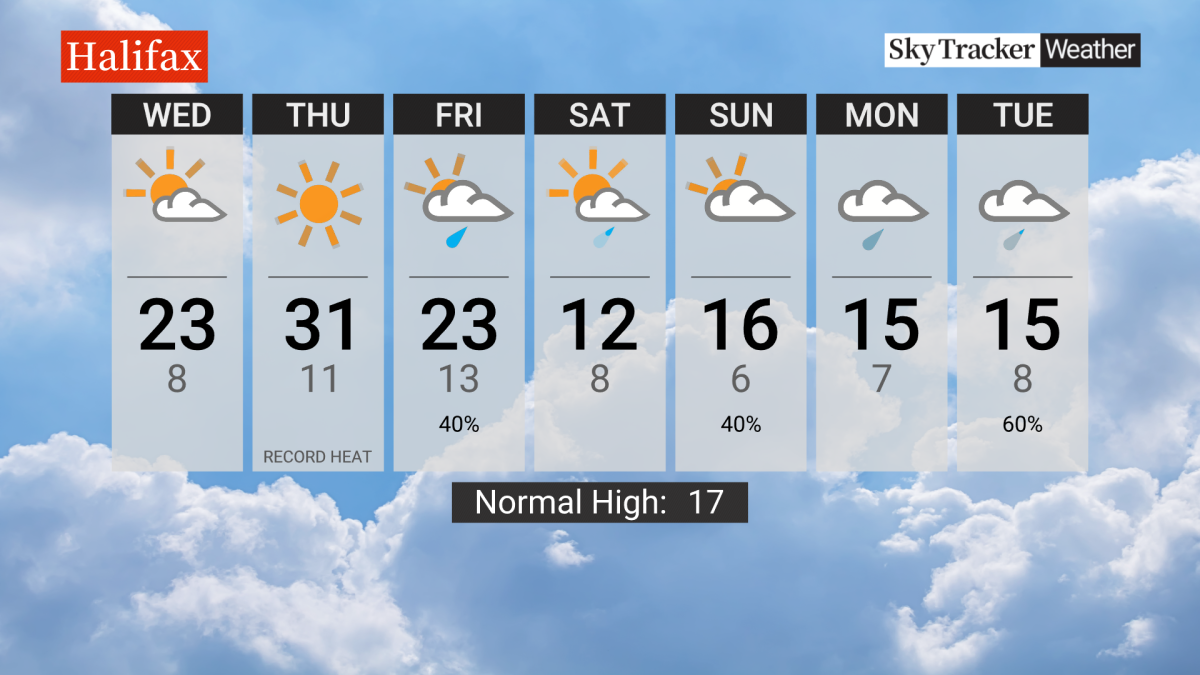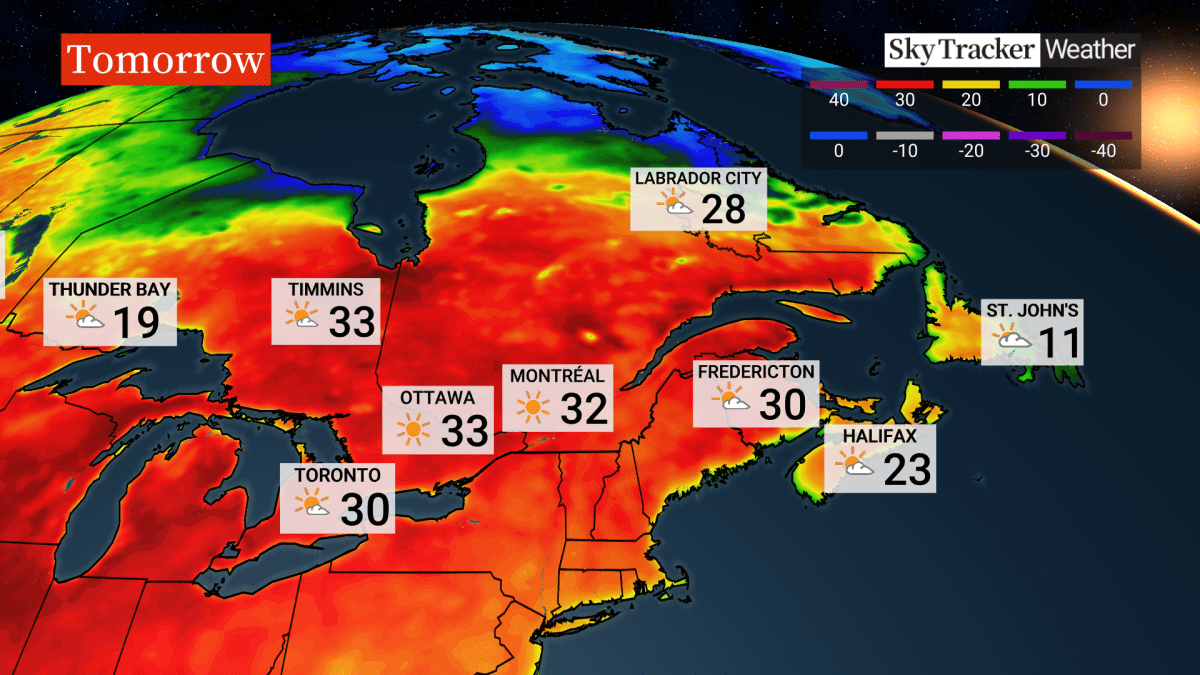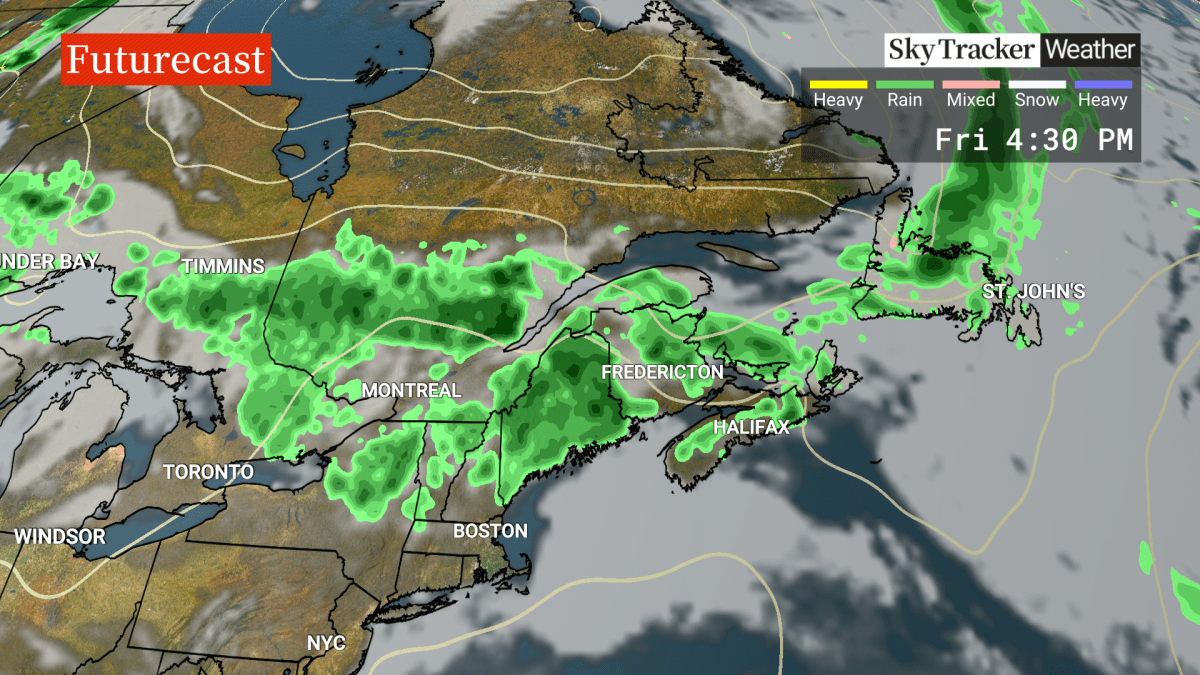Fast-spreading blazes across Canada’s East Coast – as seen in Nova Scotia and New Brunswick in recent days – signal how climate change is increasing the risks of wildfires in the country, experts say.

A wildfire northwest of downtown Halifax has already damaged or destroyed 200 homes and structures, as well as forced thousands of residents to evacuate their suburban homes.
Meanwhile, New Brunswick has also seen an “unprecedented” number of fires so far this year, according to Premier Blaine Higgs.
Canada’s eastern provinces, like the West, are no strangers to seeing wildfire activity in the spring and summer months, but the volatility of this year’s season and the conditions leading up to it are raising concerns. And the longer the seasons get, the larger the impact on communities.
“What is unique about this situation is the time of year — the fact it’s occurring in May and that it spread so rapidly,” said Anthony Farnell, Global News’ chief meteorologist.
In Nova Scotia, a lack of snow cover this past winter meant there was less spring melt and on top of that, the province, in particular Halifax, saw half of the average amount of rainfall, leading to the “driest April” on record, said Farnell.
“Unfortunately, it continues to be very dry, warm and extremely low relative humidity — and it’s that low humidity that really leads to dangerous conditions,” he added.
On top of the dry spell in the region — although some rain is expected Friday — wind action and severe storms have exacerbated the situation in Halifax, fire officials say.
But is climate change the culprit?

Get daily National news
“Without a doubt … we believe that climate change contributes to volatility,” Halifax fire Deputy Chief Dave Meldrum told reporters during an update Monday.
A warming climate is leading to more frequent drought and the outcome in many places is fires that are very hard to control, said Jennifer Baltzer, who holds the Canada Research Chair in forests and global change at Wilfrid Laurier University.
“The fires we are seeing out west and in Nova Scotia this year fit into a trend of larger, more frequent and more severe wildfires in Canada and around the world,” she told Global News.
Hotter, drier conditions mean a larger area is susceptible to burning.
“So if there is an ignition source, whether human-caused or lightning, the forests will be more likely to burn and the associated hot, dry weather conditions will support the rapid spread of the fire,” Baltzer explained.
Fires caused by lightning are another challenge that Atlantic provinces have had to grapple with.
“Last summer in Newfoundland, we had a lot of lightning fires, which is unusual,” said Andre Arsenault, a forest ecologist with the Canadian Forest Service based in Newfoundland.
“Unfortunately, climate change looks like it’s going to make these risks more challenging.”

Western Canada is also facing its own wildfire challenges, with a provincial state of emergency in effect in Alberta.
While research into fires in Western Canada indicates that carbon emissions have contributed to wildfires over the years, experts believe a similar pattern may be emerging on the East Coast.
Nathan Gillett, research scientist at Environment and Climate Change Canada, said their work on forest fires in British Columbia and Alberta has shown a “clear link to climate change.”
“Canada as a whole has warmed, including Eastern Canada, and we’re projecting more warming in the future so that warming, yes, would be expected to increase fires in Eastern Canada as well,” he told Global News.
There might be some relief for firefighters and residents in Nova Scotia as rain is expected to come Friday.
But Farnell said wet weather does not necessarily mean good news, especially if lightning strikes.
“Sometimes if there’s more lightning than there is beneficial rain, it can lead to even more fires.”
Canada, like other countries, is at risk of more catastrophic wildfires in the future unless climate change mitigation is taken seriously and carbon emissions reduced rapidly, said Baltzer.
“We can be quite confident that if we do not slow the global warming trends that yes, wildfire activity will become more intense and destructive in the coming years.”
— with files from Global News’ Skye Bryden-Blom and The Canadian Press.












Comments
Want to discuss? Please read our Commenting Policy first.